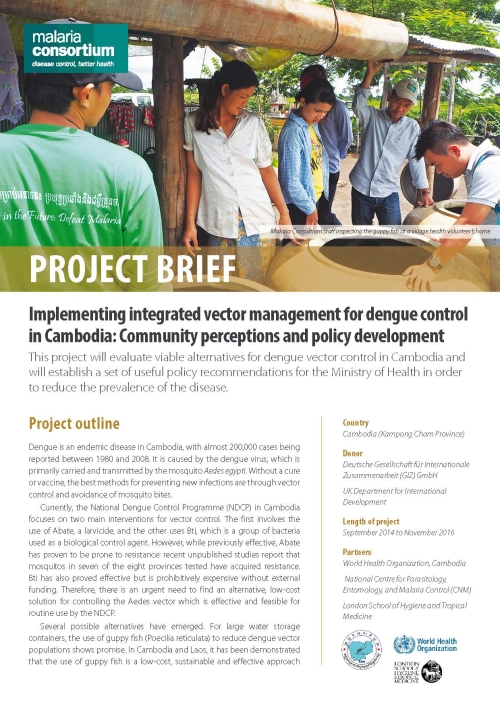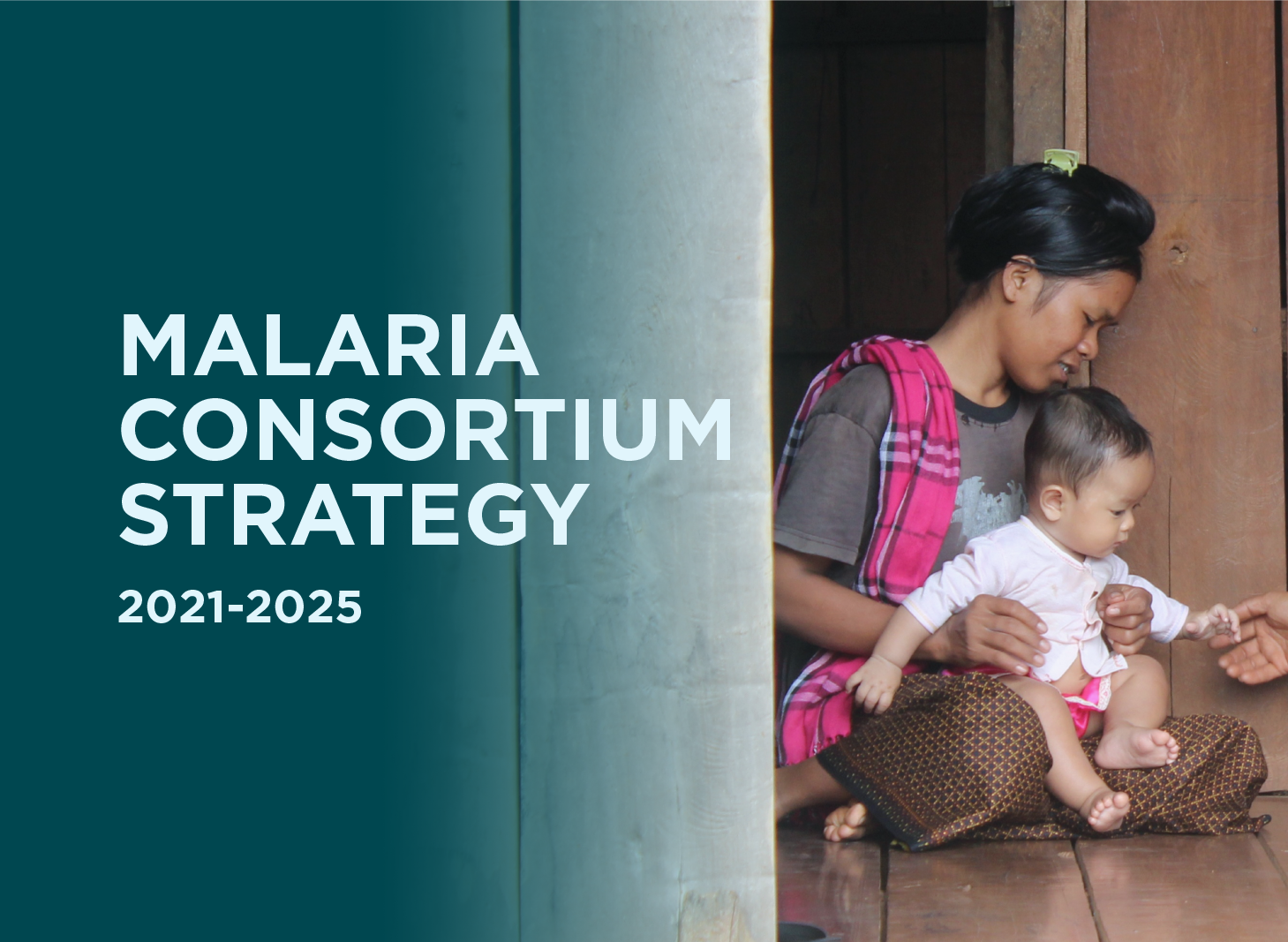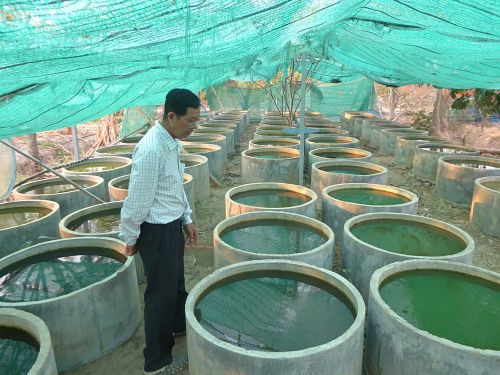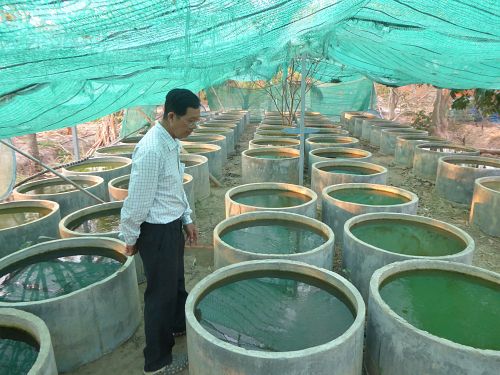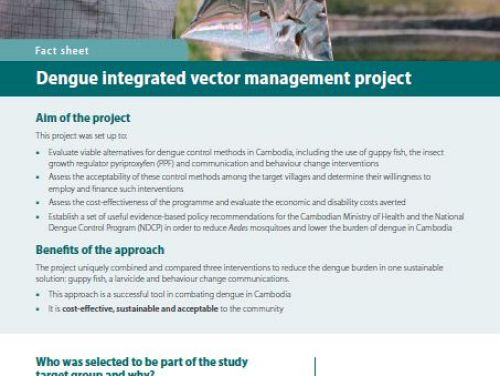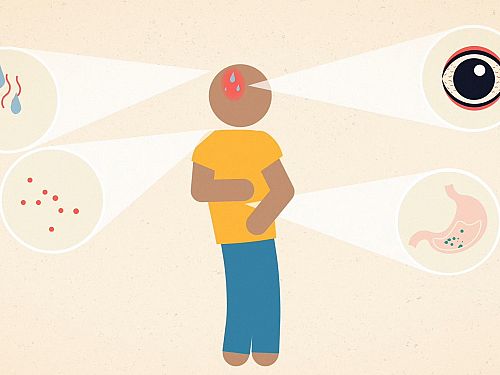Project
Implementing integrated vector management to better control dengue transmission
Without a cure or a licensed vaccine, dengue poses a growing health threat in Cambodia and the Asia region. Prevention, which remains the best method of reducing the number of cases, relies heavily on vector control and avoidance of mosquito bites. Currently, the Cambodian National Dengue Control Programme (NDCP) focuses on two interventions for vector control: the application of temephos and Bacillus thuringiensis serotype israelensis (Bti) to kill mosquitoes in standing water. However, given increasing resistance to temephos and the high costs of Bti, new vector control strategies are needed.
This project evaluates low-cost, effective alternative methods of vector control for recommendation to the NDCP, including the use of biological methods; surveying knowledge and practice around water use and vector borne disease prevention in order to guide behaviour change communication activities; modelling cost-effectiveness to provide sound evidence for decision making at the government level; and using data from evaluations to make recommendations that will reduce the burden of dengue in Cambodia.
Back
